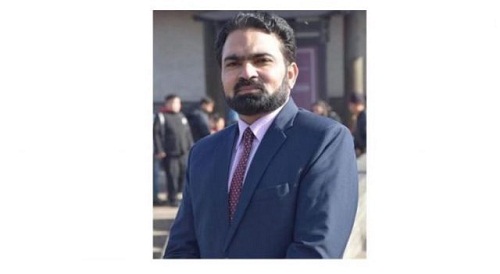Abdul Rashid Shakir
3Es of development: Economy, Equity and Ecology mean that economic growth, social progress and environmental protection must go hand in hand for sustainable development. Trading off one ‘E’ with the other out of the three: Economy, Equity and Ecology invariably leads to devastating consequences for humanity, no matter how rosy it looks in the beginning. Cognizant of the fact, United Nations approved in 2015 a universal framework of 17 SDGs, Sustainable Development Goals, to be achieved by all 193 UN-member states by 2025. 04 out of the 17 SDGs: Clean Water and Sanitation, Climate Action, Life on Land, and Life Below Water cater to environmental protection or ecological balance; 08 of them: No Poverty, No Hunger, Good Health and Well-being, Quality Education, Gender Equality, Affordable and Clean Energy, Sustainable Cities and Communities, and Peace, Justice and Strong Institutions outline basic ingredients ofreal social progress, 04 of the total; Decent Work and Economic Growth: Industry, Innovation and Infrastructure; Reduced Inequalities, and Responsible Consumption and Production devise parameters for the economic growth; and 01 out of the total 17 SDGs: Partnership for the Goals highlights importance of forging inter-institutional and inter-state partnerships for the realization of these goals.
However, in the modern market economies, economic growth rules the roost. So be it G7, G20 or regional blocks like EU, and ASEAN, all focus much on improving upon their GDP growth numbers or economies by producing more and more competitive goods and services. This never-ending quest for the fittest among peers have spurred their rapid transformation into technology-driven smart economic models from the erstwhilelabor-intensive highly industrialized business operations. This trend has rendered many job skills irrelevant and obsolete, requiring lot of workers worldwide to reskill or upskill themselves for retention as a productive part of the whole demand-supply chain.
The better part of the stats is that this technology-induced distortion of the labor market has been out paced by the technology-driven job creation as the same time. The World Economic Forum’s ‘The Future of Jobs Report 2020’ supports this claim. It identifies Data Analysts, Big Data Socialists. Artificial Intelligence and Machine Learning Specialists, Process Automation Specialists, and Digital Marketing and Strategy Specialists as the top five most demanding job roles by 2025. Besides this, Digital Transformation Specialists, Business Development Professionals, Information Security Analysts, Software and Applications Developers, and Internet of Things Specialists would also be high on demand in the job market by 2025.
The report also mentions the emerging skills/skill sets that would be highly sought-after by employers in their prospective employees by 2025. Top on the list would be skills relating to Problem Solving, Self-Management, Working with People, and Technology use and Development. They include Analytical Thinking and Innovation; Active Learning and Learning Strategies; Complex Problem Solving; Critical Thinking and Analysis; and Resilience, Stress
Tolerance and Flexibility. Other rewarding skills five years down the timeline would also include Creativity, Originality and Initiative; Leadership and Social Influence; Reasoning, Problem Solving and Ideation; Emotional Intelligence; and Technology Design and Programming.
Government of Pakistan has rightly figured out this labor market distortion effected by the rapid technological transformation and advancements. It has, therefore, introduced, besides conventional technical and vocational trades, high-end technical trades like Artificial Intelligence, Robotics and Mechatronics for training under its Kamyab Jawan Programme. The graduates of these training courses would not only fill the void for technology-driven job opportunities in the country but would also be able to pursue rewarding jobs in the international markets, especially in the developed regions of the world like the Middle East, European Union, US, UK, Canada and Australia. If we contextualize this job market analysis In the region, keeping the infrastructural development projects under China Pakistan Economic Corridor (CPEC) in the back drop; it can easily be ascertained that construction, information Communication Technology (ICT), transport, tourism, hoteling and hospitality would be high on demand in the coming years. So, far a highly-paid job in the local and regional labor market, training in the cutting-edge technologies in these fields is a must.
However, there is a flip side of the cointoo. Despite strenuous efforts being made to reskill and upskill the existing labor force, the world is and will be experiencing a massive shortage of the workforce that is not only tech-savvy but also aptly-trained in high-end technologies of the future. This demand and supply gap would further widen already-existing income disparities among the working classes, casting a serious blow to the scanty efforts being made by the Governments around the Globe for the equitable distribution of wealth in their communities. Hence, it is feared that the future economic growth of the world would result into a more lopsided social progress, further deepening the existing fissure between haves and have nots.
And very rightly said, ‘The devil is in the details.’ In this rat race of technological advancement, high productivity, competitive advantage, and enviable GDP growth, mankind is spoiling the Mother Nature. Massive industrialization and unscrupulous exploitation of natural resources has caused serious ecological disbalance, exacerbating the hazards of global warming and climate change.
With the aforesaid in mind, it can easily be assessed that the world has made a lethal tradeoff for economy with equity and ecology, making the dream of sustainable development a distant reality.
Therefore, in order to achieve UN-mandated Sustainable Development Goals (SDGs), we should adopt appropriate measures for equitable distribution of wealth to eradicate poverty, hunger, gender inequalities, and to ensure quality education, health care and basic amenities of life for all. We should also protect our environment by taking care of our land, water and air to leave a better planet to live for the posterity.
*****

















